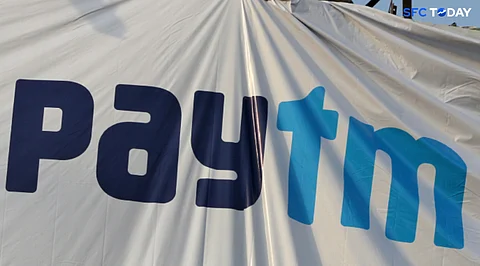

The Indian fintech sector recently witnessed a major change as Ant Group, the Chinese financial technology giant, decided to completely exit Paytm by selling its remaining 5.84% stake. This final stake sale, worth around ₹3,800 crore, was conducted through block deals, marking the end of Ant Group’s journey as a significant investor in One97 Communications, Paytm’s parent company. This move is more than a simple share sale; it represents a turning point for the company, clearing regulatory uncertainties and opening new opportunities for growth and domestic partnerships.
Ant Group, through its Netherlands-based arm, was once one of the largest foreign investors in Paytm and held over 25% at its peak. Over the past two years, the Chinese company gradually reduced its exposure.
In August 2023, it sold about 10.3% to Paytm’s founder and CEO, Vijay Shekhar Sharma. In May 2025, it offloaded another 4% stake for approximately ₹2,100 crore. The recent August 2025 transaction marks the complete exit, with the final 5.84% sold at ₹1,020 per share.
This exit carries great importance for Paytm. It ends concerns over foreign influence in India’s sensitive digital payments ecosystem. Regulatory authorities had earlier raised issues about foreign ownership in financial service providers, particularly from Chinese entities. Ant Group’s departure now clears a major obstacle for Paytm, which has been seeking critical approvals for its payments and banking operations.
The immediate effect of this exit is a significant shift in Paytm’s ownership structure. With Ant Group gone, the company now has a cleaner and more domestically focused shareholding pattern.
Founder Vijay Shekhar Sharma remains the single largest shareholder with roughly 19 to 20% ownership, while institutional investors and mutual funds now hold more than half the company. This development reduces uncertainty and is expected to strengthen investor confidence.
The regulatory benefits of this shift are also crucial. Paytm has been facing delays in obtaining a permanent Payment Aggregator licence and in expanding some of its fintech operations due to foreign ownership scrutiny.
With Ant Group no longer on the cap table, approvals are expected to come faster, allowing Paytm to focus on its core business expansion without the shadow of regulatory restrictions. The stock market reacted positively to the news, with Paytm’s shares rising by around four percent after the stake sale, reflecting renewed optimism among investors.
Paytm has been navigating a challenging financial phase in recent quarters. In the fourth quarter of FY25, the company reported a net loss of ₹540 crore, which was slightly better than the ₹550 crore loss recorded in the same period the previous year.
Revenue for the quarter stood at ₹1,912 crore, reflecting a 16% year-on-year decline due to regulatory setbacks and fierce competition from rivals. However, there was a modest sequential growth of 5%, suggesting early signs of recovery.
Despite the ongoing losses, Paytm has shown that it can achieve profitability in the right conditions, having earlier reported its first profitable quarter in its history. The company’s core business areas include UPI and merchant payments, lending and small-ticket loans under its Buy Now Pay Later model, insurance and wealth management through Paytm Money, and entertainment services such as ticketing and gaming. Among these, lending and merchant-focused financial services are expected to be the key drivers of future revenue growth.
The exit of Ant Group opens a fresh chapter for Paytm, providing the company with the opportunity to reposition itself in the market. In the near term, regulatory clearances for payments and lending activities are likely to be the most critical milestones.
A Payment Aggregator licence will allow the company to expand its digital financial services to more merchants and enhance its integration with e-commerce and offline businesses.
In the medium term, Paytm is expected to strengthen its relationships with domestic financial institutions and banks. With the ownership issue resolved, it will be easier for the company to form new partnerships in lending, insurance, and wealth products. Building these partnerships can help reduce dependence on payment services alone and provide higher-margin revenue streams.
Over the longer term, the company’s focus will be on achieving sustainable profitability and broadening its ecosystem. Integration with government-backed digital initiatives like the Open Network for Digital Commerce (ONDC) can help Paytm attract and retain small merchants, while AI-driven cost efficiency and improved lending operations will be essential for financial stability. The journey ahead will require disciplined execution, as competition from players like PhonePe and Google Pay remains intense in the digital payments segment.
The biggest opportunity for Paytm comes from the regulatory clarity it now enjoys. With no Chinese ownership, the company can move forward with a stronger sense of security, which may attract new domestic investors and long-term institutional funds. The company also has a chance to diversify its revenue streams by expanding into lending, wealth management, and insurance, all of which offer higher margins than simple payment processing.
However, challenges remain. Profitability continues to be the most pressing concern, as Paytm has yet to generate consistent net profits. The company also operates in an environment of high competition, where maintaining market share in UPI transactions is tough and customer loyalty is low. Regulatory risks, although reduced, are still a part of the Indian fintech landscape, and compliance will require constant attention.
Market analysts believe that Ant Group’s exit represents a turning point for Paytm. The company now has a cleaner ownership structure, reduced geopolitical risk, and a better chance of gaining regulatory approvals. Yet, the ultimate test will be in its ability to deliver consistent financial results.
If Paytm can convert its strong market presence into sustainable profits and continue expanding its services beyond payments, it could evolve into one of India’s most reliable fintech leaders. Strategic domestic partnerships, disciplined cost control, and a sharper focus on lending and merchant services will determine how successfully the company can transition from a growth-focused fintech to a stable, profitable financial services powerhouse.